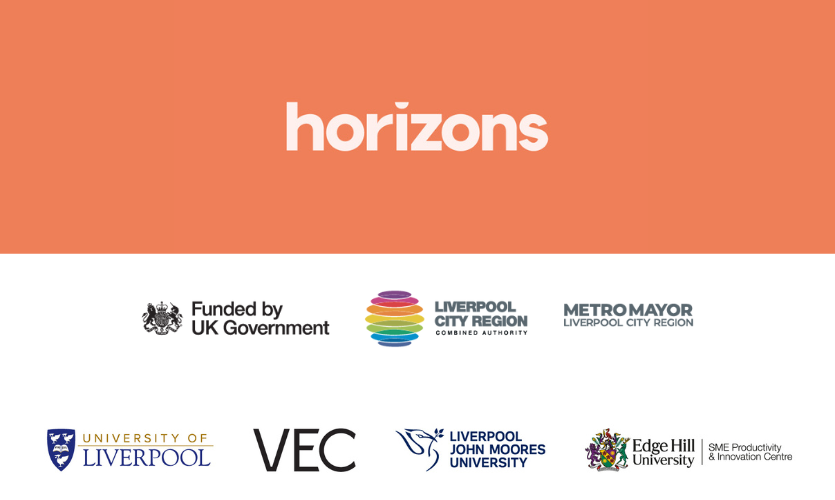Faculty of Engineering and Technology experts share insights with aspiring students

Young people from Liverpool Life Sciences UTC and The Studio Liverpool were inspired by the teaching and knowledge exchange on offer through LJMU’s Faculty of Engineering and Technology after they were invited onto campus for a day of activities.
As part of the university’s role in the region’s Horizons project, which is supporting SMEs to embrace and adopt the latest technologies and innovation, the team is also exploring ways to inspire the next generation of industry experts who could help to advance research, development and business growth with the right skills to meet future workplace needs.
The Year 12 students visited LJMU’s City Campus and explored the Faculty of Engineering and Technology’s Byrom Street Building where they were given the opportunity to use world-leading technologies including computerised manufacturing tools used in the aerospace industry; virtual reality (VR) goggles used by civil engineers in the construction sector; unique forensic science software used to analyse evidence; and insights into research on the use of autonomous robots, 3D mapping and digital sensors across a range of industries.
Exploring how further education learning leads to higher education opportunities
One student said: “The first thing they showed us was the uses of VR in the engineering industry and it was very interesting how we could explore a building virtually and be able to see accurate detail helping to give a better idea of any issues within the design.
“We were also shown how some of the processes that we've been studying in our course can be used in real world scenarios such as the designing environmental solutions. Additionally, the robotics labs were intriguing especially the robotic dog Spot as it shows the potential of what can be done.
“The staff were very approachable and willing to help to offer support for any potential related projects as well as answering any questions we had. The trip was very eye opening to Liverpool John Moores University's engineering courses for which I look forward to potentially applying in the near future.”
Meeting the needs of the future local workforce
Dan Howard, Employer Partnerships Programme Lead at Liverpool Life Sciences UTC and The Studio Liverpool, said: “It was brilliant to be able to bring our students to LJMU and see how there is so much synergy between what we are teaching our students from the ages of 14 to 19 and what is being taught by the university.
“Our ethos is all about preparing pupils to meet the needs of the future local work force. We have been focusing on how the world is changing, and preparing our students to work in a world that is undergoing a digital transformation. It was really refreshing to see a university and a set of academics who have a similar outlook as to ours.
“The academics and project staff were all down to earth, approachable but above all inspiring. I am really happy that we have begun a meaningful partnership with the university and the team at LJMU and that we can build on this helping to provide a set of learners who have a really relevant skill set to meet the demands of the local labour market. Hopefully, we can continue with our collaboration and develop a long-term education strategy for young people across the city region right from the ages of 14 through to 24.”
The UTC is hosting its Sixth Form open evening later in June.
LJMU a partner in the LCR Horizons project
Throughout 2024, LJMU will offer practical, hands-on assistance as part of the Horizons project, designed to foster economic growth and innovation in the region and is backed by £3.7 million from the UK Government through the UK Shared Prosperity Fund (UKSPF) with the Liverpool City Region Combined Authority as the lead authority.
Horizons will support over 100 local SMEs, bringing cutting-edge and industry-leading innovations to the six boroughs through collaborative support from experts at the Faculty of Engineering and Technology at LJMU, the Virtual Engineering Centre (VEC) at the University of Liverpool and from the SME Productivity and Innovation Centre (SME PIC) at Edge Hill University.



